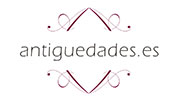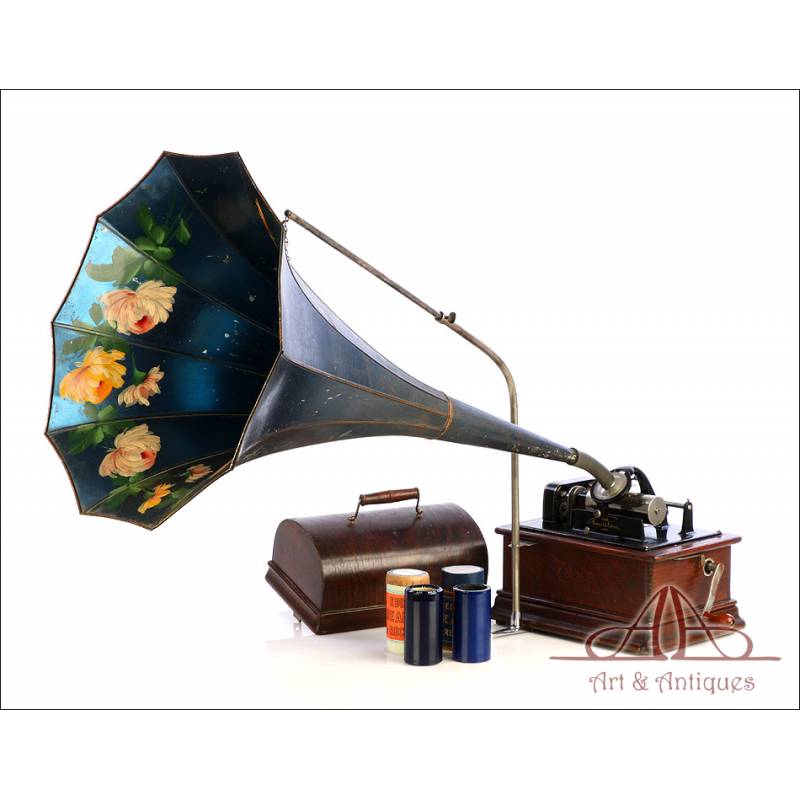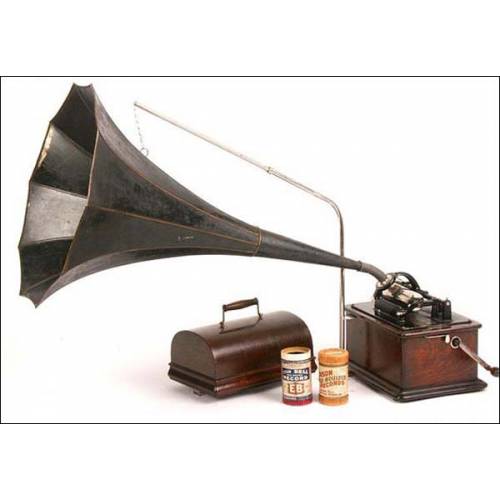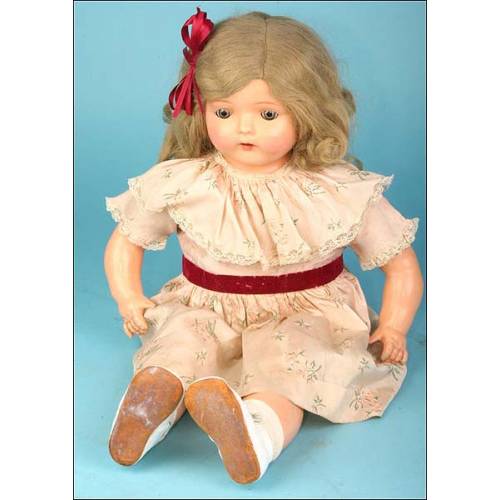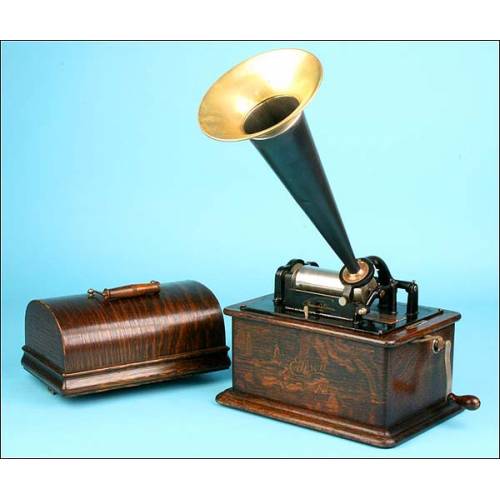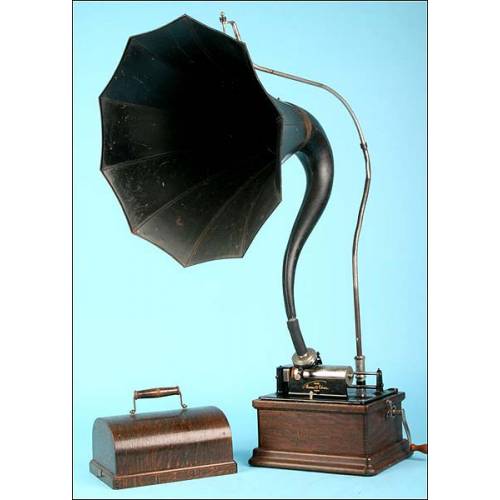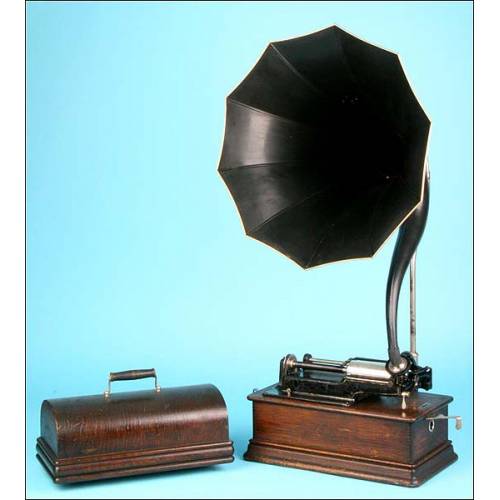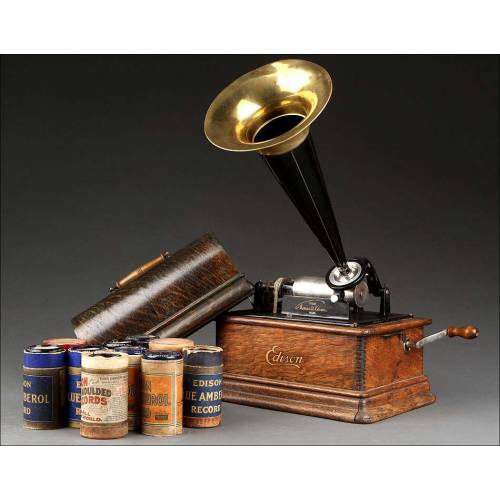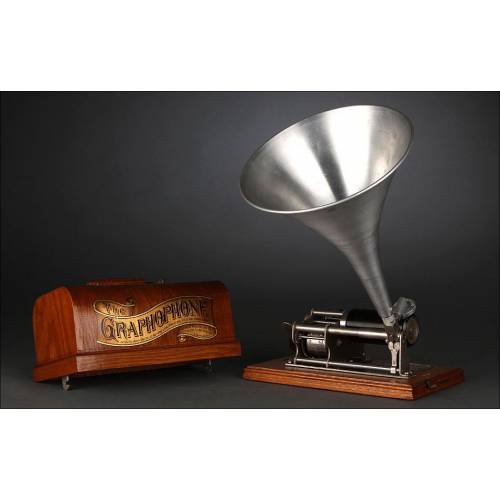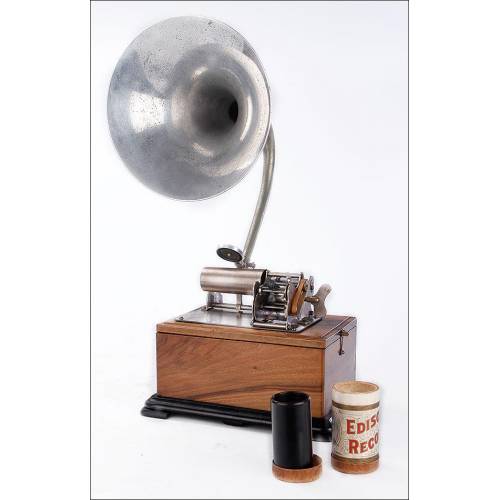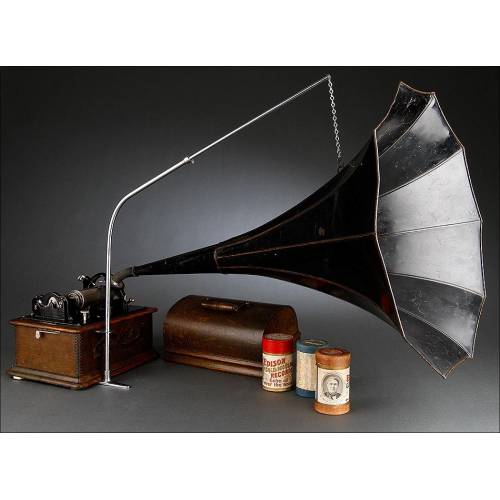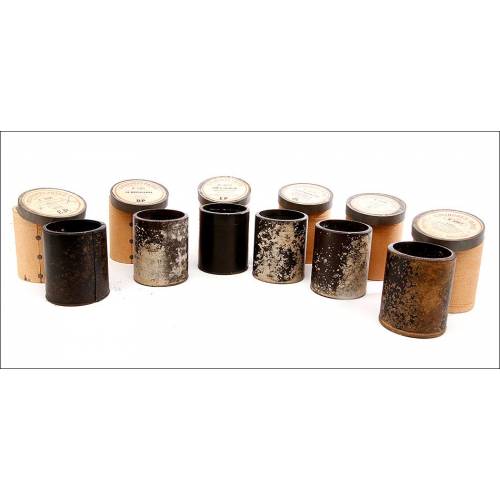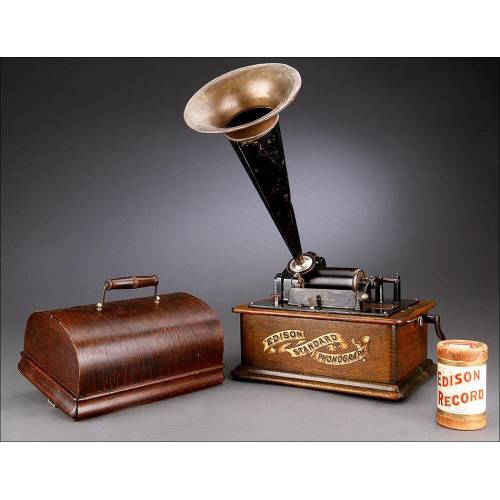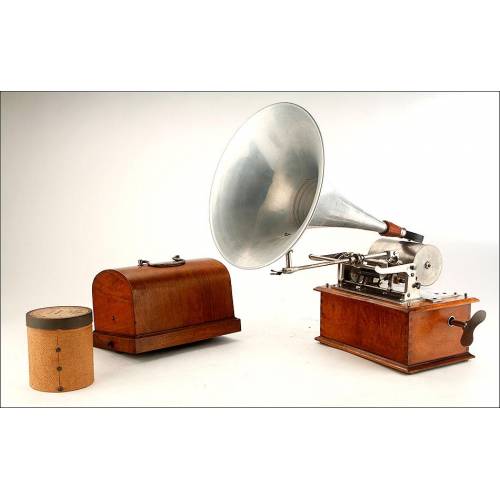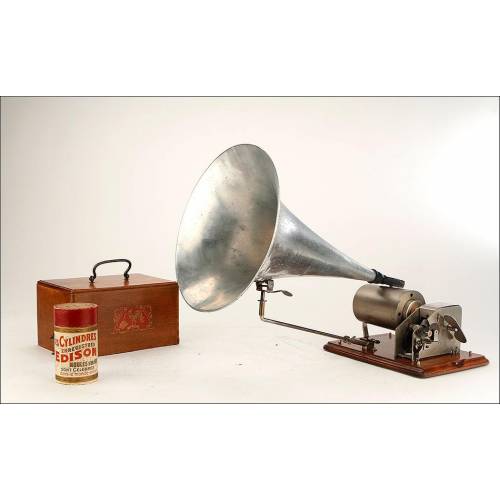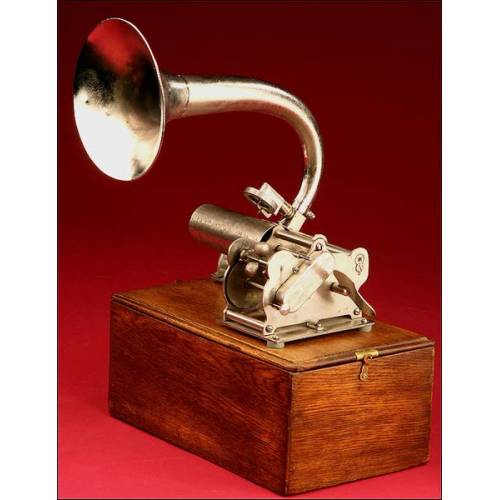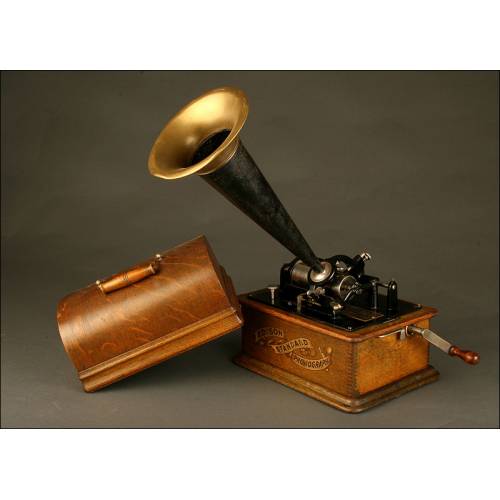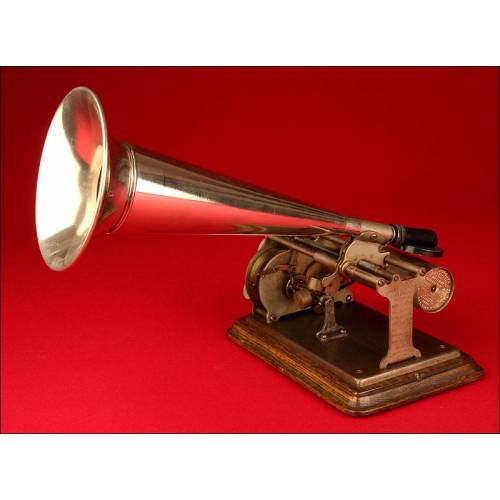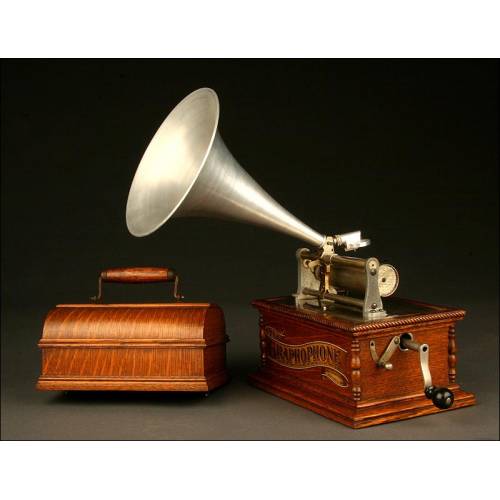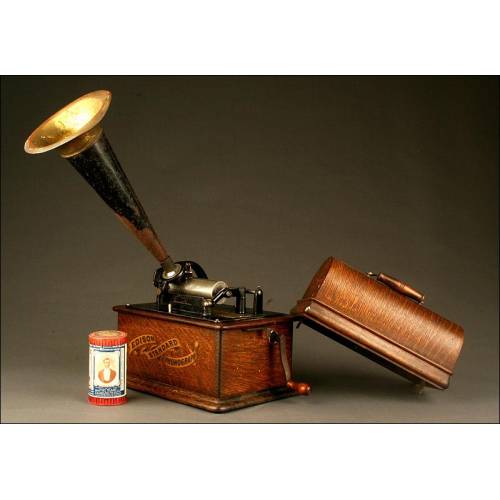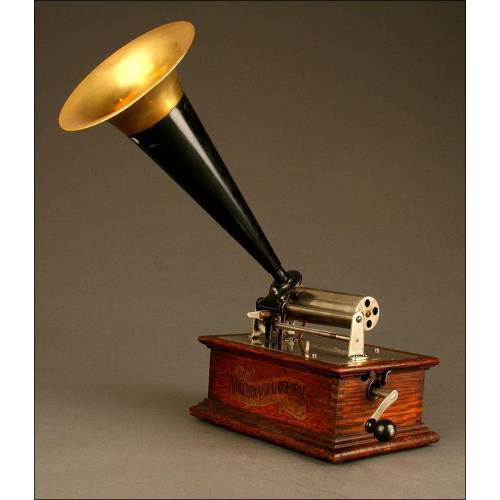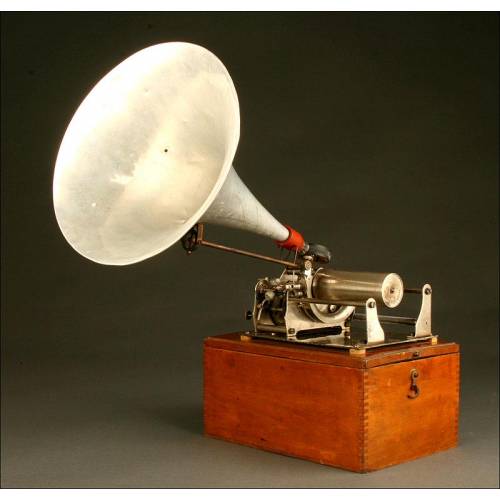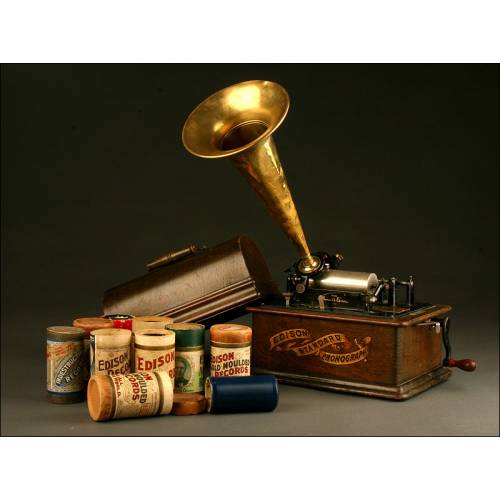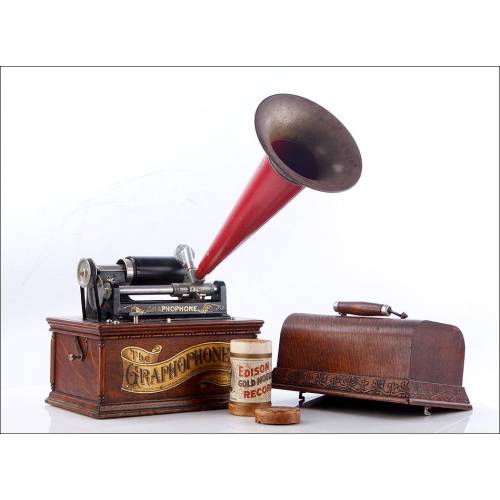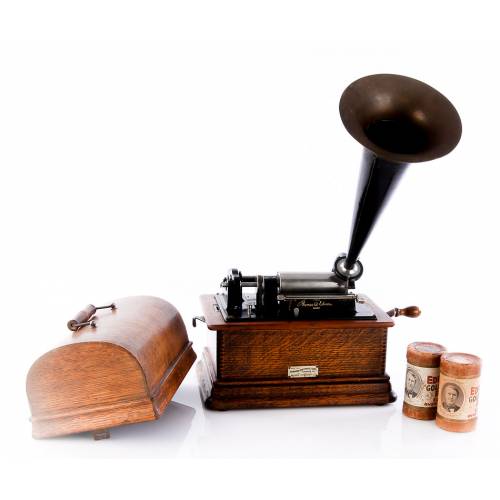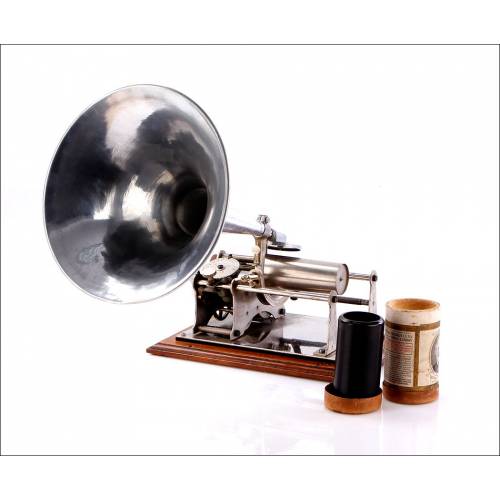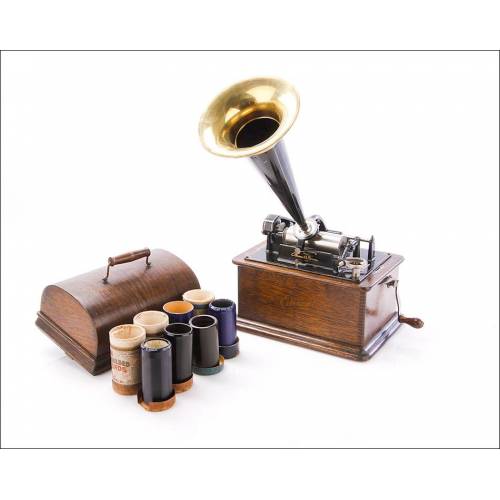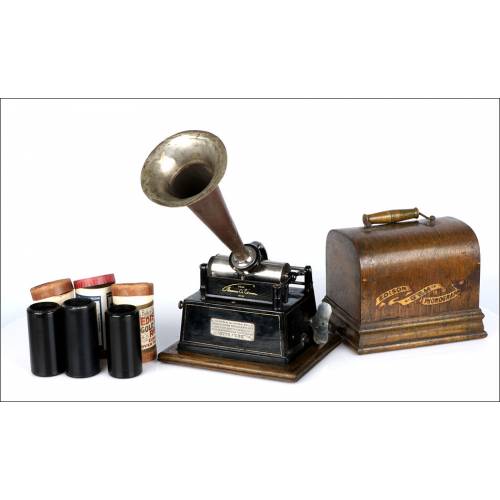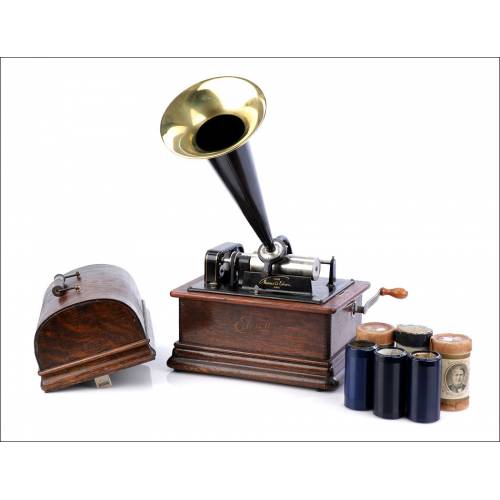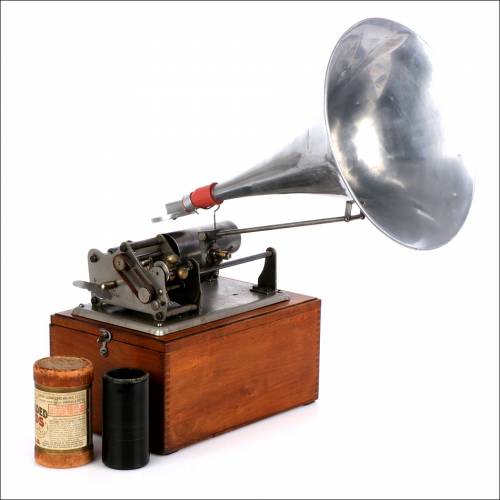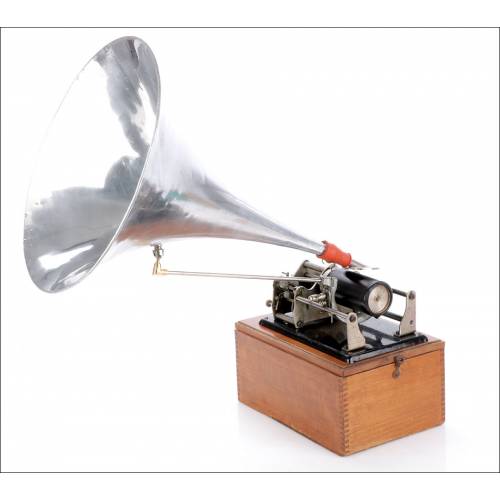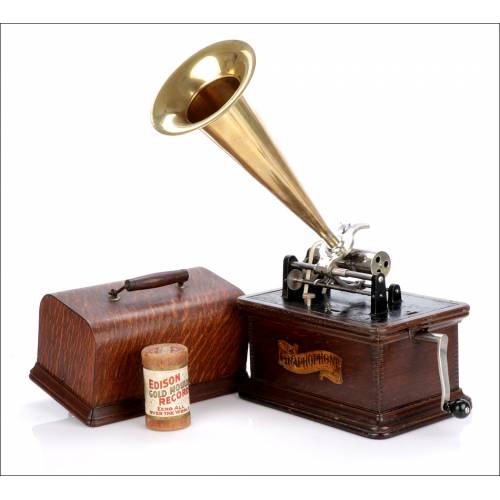C-966
Antique Edison Standard Phonograph with Painted Horn. USA, 1900
Wonderful Edison Standard phonograph with hand painted decoration on the horn. Collector's item. Very decorative.
Sold!
Striking antique Edison Standard gramophone with hand-painted horn, made in the USA in 1900. This is a very special piece as this horn model was the only one decorated with hand-painted motifs of all the one produced by the company. All the phonographs component parts and pieces are original from the time, except for the foot of the crane used to hold the horn. The phonograph is in perfect working order: the motor has been cleaned and tuned to guarantee an optimal performance, so today it can play two-minute cylinders with a clear and neat sound. The phonographs box is made of solid-oak wood and remains in excellent condition. It shows dovetail joints at the corners and is protected by the original French-polish finish. One of its sides shows the Edison brand name, finely preserved and clearly legible. The curved lid is made of the same material and remains in similar good condition. The motor is composed of a black-enameled metal body, a series of chromed-metal component parts and the striking metal horn. The enameled body bears the Thomas A. Edison signature printed in golden lettering; we can see this signature again at the top of the horn. The reproducer is an N model piece in fine condition. The horn is covered of metallic-blue enamel outside and inside, with gold-painted nerves and a gorgeous set of colorful hand-painted flowers at the mouth. This antique Edison Standard phonograph with hand-painted horn is a powerfully decorative item in perfect working order. Measurements: Case: Width: 13 inches (32,5 cm.) Height: 5,8 inches (14,5 cm.) Depth: 9,4 inches (23,5 cm). Horn: Length: 32 inches (80 cms) - Diameter 19,2 inches (48 cms)Edison Phonographs History The phonograph was invented by Thomas Alva Edison in 1877. While working in some improvements for the telegraphs and telephones of those days, the famous North American inventor imagined a new method to record sounds in tinfoil-covered cylinders. Then he designed a machined with a mechanic motor which mounted two different needles: a recording one and a playing one. The first words ever recorded are part of the History: they were the first words of a popular rhyme, Mary had a little lamb. The inventor himself was astonished when he heard himself saying the words. The following year he founded the Edison Speaking Phonograph Company to sell his invention, but the phonograph was not a really popular item until some years later. Edison founded several companies during his life, among them the Edison Bell of London, and his own trademark, Thomas A. Edison.
